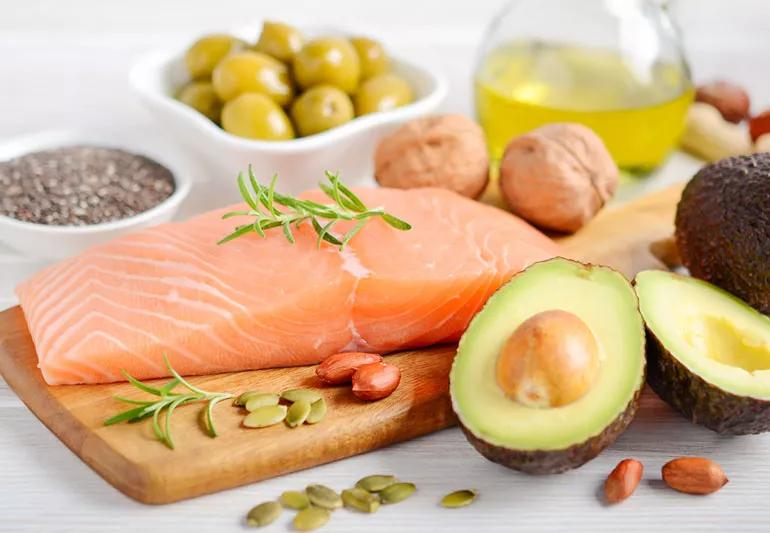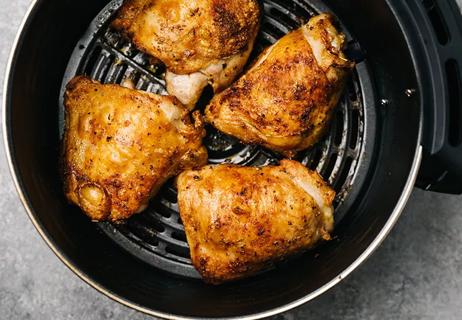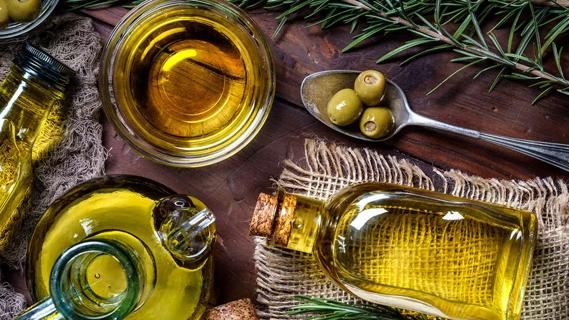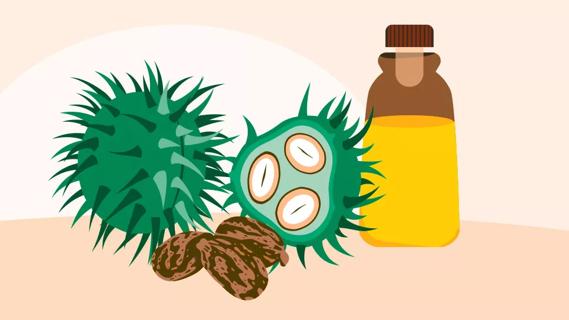Boost your health by eating more plant-based foods and fish

Ready to turn your world upside down? Dietary fats can be good for you. In fact, they’re an essential nutrient to keep your body’s motor running. The key, though, is eating the right kinds of fats.
Advertisement
Cleveland Clinic is a non-profit academic medical center. Advertising on our site helps support our mission. We do not endorse non-Cleveland Clinic products or services. Policy
Which brings us to unsaturated fats — aka, the “good fats” to have in your diet. Let’s dig into what they can do for your health and where to find them with registered dietitian Anna Taylor, RD, LD.
In the simplest of explanations, unsaturated fat is the fat typically found in plant-based food (think items like vegetables, nuts and seeds) as well as in many fish that land on our plates, says Taylor.
But let’s zoom in a little closer to get a better understanding of this chemical compound.
Scientifically speaking, unsaturated fat is a fatty acid built primarily from carbon and hydrogen. What’s unique about unsaturated fat on a molecular level is that it’s missing at least two hydrogen atoms. Hence, the “unsaturated” in the name. (We’ll get to saturated fats in a bit.)
The missing hydrogen atoms mean that a few carbon atoms share double or even triple bonds. That weakens the overall structure of unsaturated fats — which is very, very important when we’re talking about your health.
Here’s why: The weaker structure means unsaturated fats are typically an oily liquid instead of a solid at room temperature. That means they’re also less likely to eventually gunk up your arteries.
There are two types of unsaturated fats in the food that you eat: monounsaturated fats and polyunsaturated fats (such as omega-3 and omega-6 fatty acids). The difference between “mono” and “poly” unsaturated fats involves the number of double bonds (as discussed above).
Advertisement
“So, monounsaturated fats are great for you and omega-3 polyunsaturated fats are stupendous for you,” says Taylor.
As for omega-6s, they aren’t bad, exactly … but Americans already get too many of them, says Taylor. That means eating more omega-6s can create imbalances that lead to increased inflammation in your body. (Omega-6s are still better for you than saturated fats, though.)
Research connects consuming moderate amounts of unsaturated fats with a slew of health benefits, most notably, lower risk of premature death.
Unsaturated fats can help boost good cholesterol and lower bad cholesterol in your blood, which can lower your risk of heart disease or stroke, explains Taylor. They also work to maintain your body’s cells and brain health, and certain fats even fight inflammation.
In addition, unsaturated fats can help you absorb certain vitamins, such as A, D, E and K.
All those good things we just said about unsaturated fats? Well, in most cases, the explanation is the opposite when it comes to what saturated fats do to your body.
A diet heavy on saturated fat can make your cholesterol levels skyrocket, cause inflammation and increase your risk of heart-related issues. Given that, it’s no surprise that the American Heart Association recommends limiting saturated fats.
Saturated fat is higher in meats like beef, pork and poultry, plus other animal-based food like eggs and full-fat dairy (including cheese and butter). It’s also found in tropical cooking oils like coconut oil and palm oil.
“Saturated fats are definitely a problem — and we eat way too many of them,” says Taylor.
Going back to the scientific side of things, saturated fat carries a full complement of hydrogen atoms. That makes it more stable molecularly. It also means that saturated fats are more “solid,” which is not good for your system.
So, how much fat should be in your diet? A good rule of thumb is that fats should account for about 30% of your daily caloric intake. (Recommendations on calories people need per day range from 1,600 to 3,000 to maintain your weight.)
“Ideally, most of the fats you eat should be the healthier unsaturated fats,” says Taylor. “Limit saturated fat to no more than 5% to 6% of your total calories, or about 11 to 13 grams per day for someone eating 1,600 to 2,000 calories per day. Avoid trans fats completely.”
(Note: Artificial trans fats were once found in a lot of processed food, but the U.S. Food and Drug Administration banned them in 2018. Check labels of older pantry products for partially hydrogenated vegetable oil, the main culprit of artificial trans fat.)
Advertisement
Easing stress on your heart or losing a few unwanted pounds often can be done by shifting your meal menu. “Replace the bad fats in your diet with the good fats,” advises Taylor. “It can make a big difference.”
You’ll find unsaturated fats in a few different areas of your grocery store. (Bonus health benefit: Walking the shopping cart up and down the food aisles should help you get some extra steps in, too.)
Food high in monounsaturated fats include:
Advertisement
Polyunsaturated fats come in two main varieties:
Remember that fats are just one part of what you eat. “You don’t want to hyper-fixate on just fats,” cautions Taylor. “Look at the foundation of your entire diet. Build an eating pattern that’s good for you and one you can enjoy.”
A healthy eating plan includes fruits, vegetables, whole grains and lean protein. (Pro tip: Taylor recommends the Mediterranean diet to build an eating plan that can work over the long haul.)
“Every meal is an opportunity to make good choices,” says Taylor. “If you fill up on good, healthy foods, you’re not going to be missing other items. Aim for variety and balance and you’ll be heading in the right direction.”
To hear more from Taylor on this topic, listen to the Health Essentials Podcast episode, “How To Incorporate Healthy Fats Into Your Diet.” New episodes of the Health Essentials Podcast are available every Wednesday.
Advertisement

Sign up for our Health Essentials emails for expert guidance on nutrition, fitness, sleep, skin care and more.
Learn more about our editorial process.
Advertisement

Olive oil is high in heart-friendly unsaturated fats

Your body needs some saturated fat, but too much can contribute to health issues

It’s best to avoid regular use of the ‘beef drippings,’ given high levels of saturated fat

These common cooking oils are often found in ultra-processed foods and can contribute to inflammation in your body

This healthy oil is packed with nutrients and great for roasting, drizzling and even baking

The popular cooking method can help you cut down on fat without losing the flavor and texture of your favorite foods

EVOO is full of antioxidants and has anti-inflammatory properties, both of which aid your body in multiple ways

The oil some TikTokkers swear by can actually cause stomach and eye issues, as well as skin rashes

Even small moments of time outdoors can help reduce stress, boost mood and restore a sense of calm

A correct prescription helps your eyes see clearly — but as natural changes occur, you may need stronger or different eyeglasses

Both are medical emergencies, but they are very distinct events with different causes